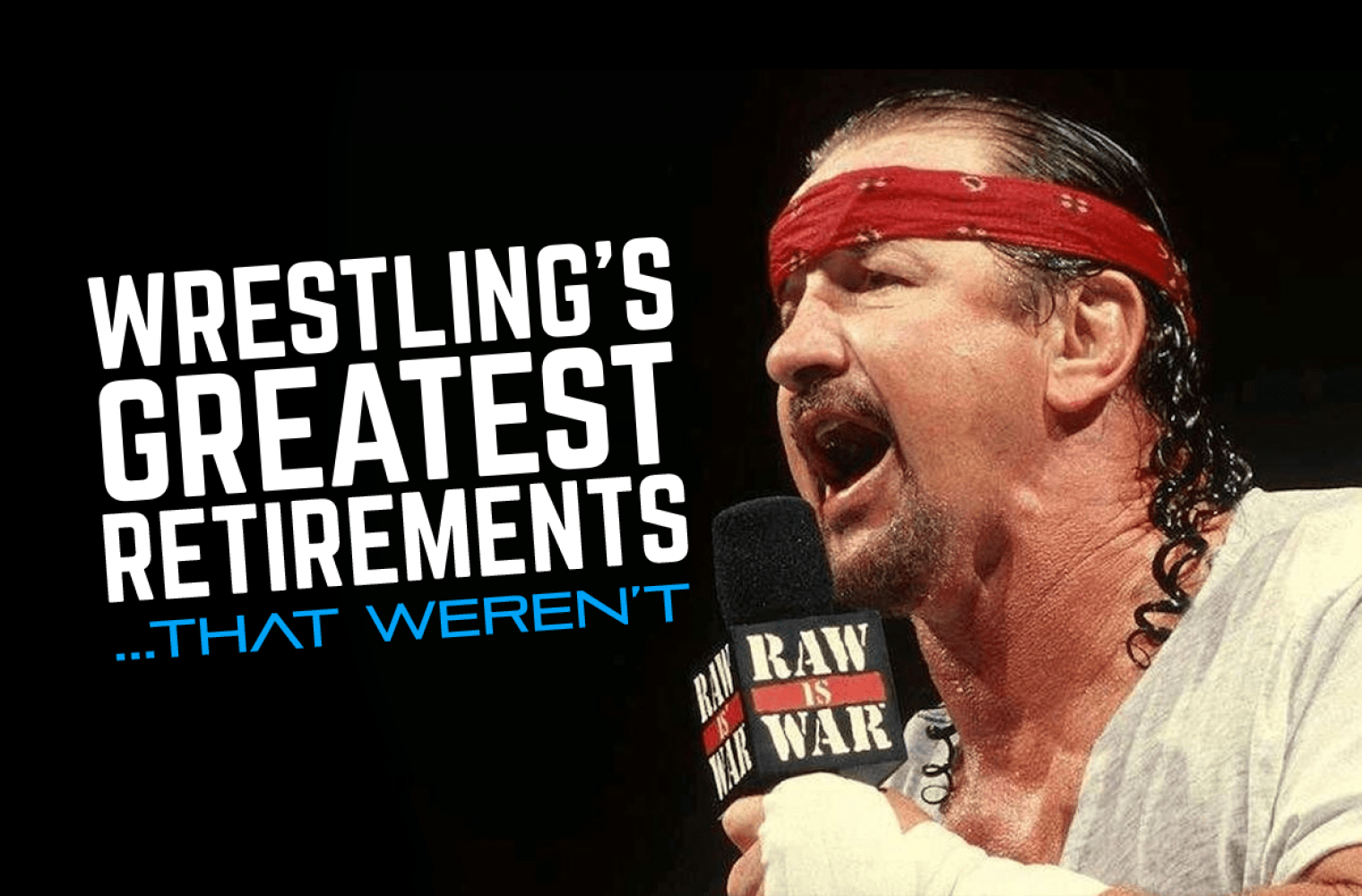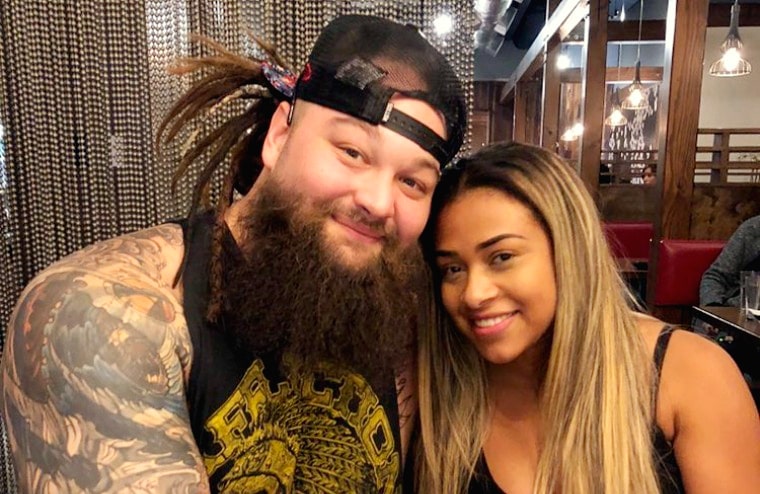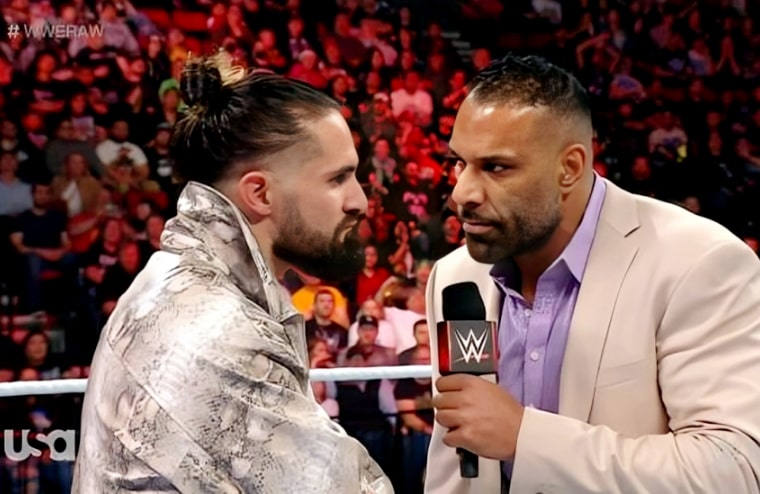This past weekend, football fans were shocked with the sudden announcement that Indianapolis Colts quarterback Andrew Luck was retiring from the NFL. Easily the biggest sports story of the weekend, the news prompted numerous comments and reactions (especially from Fantasy Football fans who had drafted him for their team). Wrestling fans had some fun with the story as well, speculating that Luck was really leaving the NFL so he could jump to Vince McMahon’s XFL, the first of McMahon’s “talent raids” on the competition. See, the word “retirement” has a different meaning to those of us that enjoy the comings and goings in the squared circle. In wrestling, a retirement (unless attached to a serious injury) is often met with skepticism from many… and anticipation of the wrestler inevitably returning.
Retirements in professional wrestling tend to fall into three categories. The first is pure storyline, where it is just an angle to set up the next match. When done right it can be really effective, as was the case with Mark Henry’s retirement speech in 2013, which ended in him attacking John Cena. Many argue it was one of the best-done angles in the last decade. The second is the legitimate retirement, which as mentioned above, is usually attached to a medical issue. In 2011, eight days after successfully defending the World Title at Wrestlemania against Alberto Del Rio, Edge announced his retirement due to cervical spinal stenosis. Fans can be jaded when such announcements are made, but eventually even those waiting for the swerve realize as time passes that the departure from the ring is legitimate.
Then we have the third kind, which this column will look at. It is when a retirement seems legitimate and believable, only for the draw of the ring (and dollars on the payday) to win out and have the wrestler return. There are some criteria in order to make it on the list. First, your retirement had to be a big deal in the eyes of fans. There had to be a hyped match or memorable exit for the performer. Quiet departures don’t cut it. Second, it could not be obvious that the wrestler was returning. For example, Randy Savage’s Wrestlemania VII retirement match loss to the Ultimate Warrior (and subsequent reunion with Miss Elizabeth) was a memorable event, but the Macho Man’s return to the ring was inevitable, and he remained a presence on WWF programming the entire time. Third, the wrestler had to compete in the ring substantially upon their return. Thus, I am not including Bret Hart’s 2010 Wrestlemania match with Vince McMahon and brief in-ring appearances for the list.
With that in mind, here is my list of the best wrestling retirements… that weren’t.
Ric Flair – Retired March 2008. Returned November 2009.
This retirement had it all: Storyline, great match, beautiful ceremony. After announcing he would “never retire” from wrestling, Vince McMahon informed Ric Flair that he would be forced to retire the next time he lost a match. This led to four months of the Nature Boy defeating Randy Orton, MVP, Triple H, Umaga, William Regal, Ken Kennedy, Triple H and even Vince himself, leading to a Wrestlemania XXIV showdown with Shawn Michaels. Flair and Michaels cut some amazing promos leading into an incredible weekend that saw Flair inducted into the WWE Hall Of Fame, his emotional match with Michaels, and then a huge farewell on Raw the night after. The 16-time World Champion was going to ride into the sunset…
… well, not really. Flair was making appearances on WWE television in less than a year, and when his contract with the company expired in June of 2009, he made some appearances for Ring Of Honor. However, Flair didn’t wrestle an actual match until November 2009, when Hulk Hogan brought him to Australia for the “Hulkamania: Let The Battle Begin” tour, which saw Flair lose four straight matches to the Hulkster. From there, Flair headed to TNA and more matches followed. Flair had his final bout against Sting at a September 15, 2011 Impact taping, which many saw as fitting, seeing how Sting was his final opponent in WCW. However, others would like to pretend Flair’s matches from 2009-2011 never happened, since his WWE retirement was so well done.
Terry Funk – Retired August 1983. Returned October 1984.
We could actually make a list ranking all of Terry Funk’s retirements through the years. Funk swears he means it every time he has retired, but he has also said that the draw of the ring, combined with promoters making it financially beneficial, has him coming back again. The idea of Funk retiring at 39 seems insane now, but Funk had declared his intention to get off the road and spend more time with his family. Those inside the business also know that Funk had cut his NWA World Title reign in the 70’s short for similar reasons, so this first retirement seemed to be on the level. In front of a packed Sumo Hall, Terry teamed with his brother Dory to defeat Stan Hansen & Terry Gordy, with Terry pinning Gordy after a top rope sunset flip. Funk followed this with his famed “Forever” farewell which is still viewed as one of the most memorable moments in Japanese wrestling history.
Funk made only a few appearances at wrestling events over the next year, but on October 26, 1984, Terry would return to action, teaming with Dory against the Road Warriors in St. Louis, Missouri, battling the then-AWA World Tag Team Champions to a double disqualification. One month later, Terry was back in Japan, teaming with Dory for the annual All Japan Real World Tag League tournament. Since then Terry has had numerous retirements and returns, one of his most famous following his loss to Ric Flair in an “I Quit” match at the Clash Of The Champions in November 1989. Less than a year later, Funk won the USWA Championship from long-time rival Jerry Lawler in Memphis. Terry’s most recent final match took place in September 2017, teaming with the Rock N’ Roll Express against Lawler, Doug Gilbert and the late Brian Christopher. We’re coming up on the two-year mark for Funk’s most recent retirement… at least until a promoter makes another offer Funk can’t refuse.
Roddy Piper – Retired March 1987. Returned May 1989.
After becoming the top heel in professional wrestling and Hulk Hogan’s arch nemesis in the mid-80’s, Roddy Piper began a practice of taking sabbaticals away from the ring. Piper understood, better than most, that even the best characters can overstay their welcome, so his occasional vacations kept the Rowdy One fresh in the eyes of the fans. However, in 1987 the Hot Rod, now one of the most popular stars in the WWF, formally announced that he would be retiring, “win, lose or draw” from wrestling following his Wrestlemania III “hair vs. hair” match with Adrian Adonis. In front of the largest crowd ever to attend a wrestling event at the time, Piper defeated Adonis (and helped Brutus Beefcake kickstart his “Barber” gimmick). Piper was off to pursue an acting career, and there was no indication that he would be returning.
Other than some unannounced appearances at Pacific Northwest shows (Piper always credited Portland promoter Don Owens with giving him his big break), Piper avoided the wrestling spotlight, save for a Wrestlemania V appearance where he conducted a memorable Piper’s Pit, running off Brother Love and Morton Downey Jr. Two months after that appearance, and 26 months after his farewell match, the Hot Rod returned to action, substituting for Jake Roberts in matches against Ted DiBiase. Soon, Piper was back in action, resuming his pattern where he would be active for a time, then take a break, always leaving the fans wanting more. This included memorable runs in WWF and WCW, showing his days as a headliner were definitely not behind him. His final match would end up being on August 12, 2011 at an Insane Clown Posse-produced JCW Legends event, where he would team with longtime bodyguard Cowboy Bob Orton to defeat fellow “un-retirees” Terry Funk and Mick Foley. The Rowdy One passed away on July 31, 2015 at the age of 61.
Mick Foley – Retired February 2000/April 2000. Returned May 2004.
Of the names listed so far, Foley seems to be the one that tried the hardest to stay retired once he walked away from the ring. As a conclusion to his 2000 feud with Triple H, Foley (as Cactus Jack) lost a Hell In A Cell match, forcing him into retirement. However, Mick would come back for an encore of sorts shortly after, representing Linda McMahon in the Wrestlemania 2000 main event against Triple H, The Rock and Big Show. Following that match, Foley did go into retirement from active wrestling for several years. Yes, he made numerous appearances for WWE and independent companies, but he didn’t actually wrestle a match until August 5, 2004 when he faced Toshiaki Kawada at a HUSTLE event for the All Japan Triple Crown in a losing effort.
Foley didn’t wrestle again until May 7, 2005 when he would team with Shane Douglas against Al Snow & D’Lo Brown at a tribute show for SMW referee Mark Curtis (the late Brian Hildebrand, who was one of the classiest people you’d ever meet). His next match was three months later, teaming with the Funks against the Midnight Express (Stan Lane, Bobby Eaton & Dennis Condrey) at a WrestleReunion event. Foley seemed to be very deliberate about picking and choosing his matches, until a 2003 return to WWE led to many more matches, including his memorable Hardcore match with Edge at Wrestlemania 22. Foley’s last match as an active wrestler to date was at the 2012 Royal Rumble. Later that year, Foley confirmed that he was retired although he has continued to make appearances for WWE, most recently getting attacked by Bray Wyatt on Raw. Five years into this retirement, have we seen the last of Cactus Jack… Mankind… Dude Love… Mick Foley as an active wrestler? The retirement seems to be sticking this time… but then again, Terry Funk is Foley’s idol.
Shawn Michaels – Retired March 1998. Returned April 2000/August 2002.
Most fans divide Shawn Michaels’ career into two halves. Phase One of his career saw him rise from one-half of the Rockers tag team into a main event star, who later became as famous for his attitude outside the ring as his matches in it. In 1998, after suffering a back injury during a casket match against the Undertaker, Michaels dropped the World Title to Steve Austin at Wrestlemania XIV and ended his time as an active wrestler in one of the biggest matches of the year. Michaels continued to appear for the company in non-wrestling roles for a time, but in 1999 he opened a grappling school (first called the Shawn Michaels Wrestling Academy, later rename the Texas Wrestling Academy) and even started a local television show. He gave every indication that his in-ring days were behind him, however in April 2000, he wrestled a “non-sanctioned match” on a TWA show, defeating Venom in a Hardcore match. Tapes of this match circulated, leading to the belief that the Heartbreak Kid could indeed still be the Showstopper… if he wanted to be.
Enter 2002, and after 18 months away from WWE television in any capacity, Michaels returned, setting the stage for an angle between him and Triple H that would result in a Summerslam match (again, “non-sanctioned”) that would show the world Michaels could still go. Thus, Phase Two began, with many arguing that Michaels work in the eight years that followed was superior to his matches during his younger days. All-time classics with the Undertaker punctuated this run, including HBK’s final match at Wrestlemania XXV. Michaels confirmed his retirement was for real, noting his desire to spend more time with his family. Michaels has remained involved with the WWE on a part-time basis since then, throwing an occasional superkick, but didn’t return to the ring for an actual match for eight years (longer than his first retirement) when the draw of reforming D-Generation X with Triple H against The Undertaker & Kane at the Crown Jewel event last year was an offer that he couldn’t refuse.
Do you have a favorite wrestling retirement that didn’t stick? If so, let me know. Also, you can check out last week’s column, “The Good, The Bad and The Ugly: Wrestlers On Social Media” and all of my past work in here on WebIsJericho.com.
- The ECW Matches We Didn’t Get: Shane Douglas vs. Brian Pillman - May 8, 2021
- The ECW Matches We Didn’t Get: Public Enemy vs. Bubba Ray & D-Von Dudley - April 14, 2021
- The ECW Matches We Didn’t Get: Mike Awesome vs. Rob Van Dam - April 4, 2021




